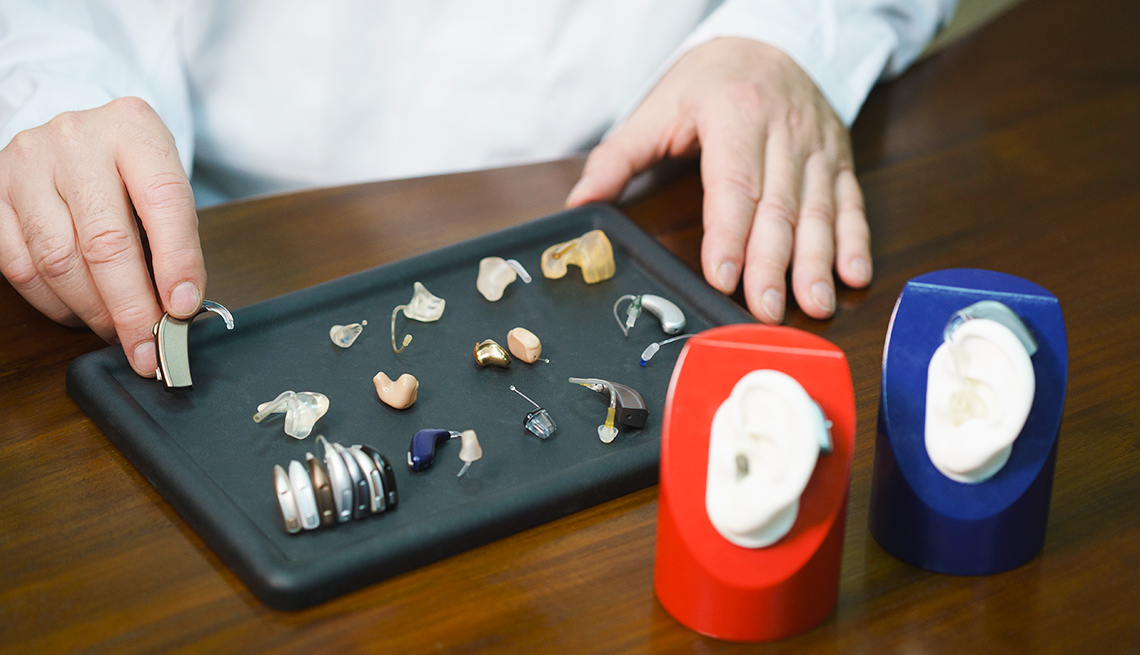Staying Fit
Hearing aids that can cost more than $2,000 apiece are only slightly more effective than some over-the-counter sound-amplification devices that sell for just a few hundred dollars, according to a recent study.
The study bolsters legislation pending in Congress that would have the Food and Drug Administration set regulations for cheaper over-the-counter products and would make the devices more accessible and safer. Consumers with mild to moderate hearing loss would be able to purchase the devices without a prescription or medical exam.


AARP Membership— $12 for your first year when you sign up for Automatic Renewal
Get instant access to members-only products and hundreds of discounts, a free second membership, and a subscription to AARP the Magazine.
For the study, researchers compared how well 42 older adults with mild to moderate hearing loss repeated sentences spoken in the presence of background noise. The researchers tested their ability to understand the speaker without any devices. Then they tested the subjects with a hearing aid and with five “personal sound amplification products” sold over the counter.
The hearing aid used in the study was a brand commonly dispensed in audiology clinics. The personal sound amplification products (PSAPs) used had the best electroacoustic properties or were available in retail pharmacies. While PSAPs perform like hearing aids, they can’t be marketed as hearing aids because they don’t meet FDA standards.
The results, published this month in JAMA, found little difference between the hearing aid — which costs about $1,900 per ear — and some of the PSAPs, which cost between $300 and $350 a pair.
Medicare doesn’t cover hearing aids, nor do most private health insurance plans. Age-related hearing loss is a common problem, but only about a quarter of the roughly 30 million people who have it use hearing aids, said Nicholas Reed, an audiology instructor at Johns Hopkins School of Medicine and the study's lead author.
Read the full story here.
































































